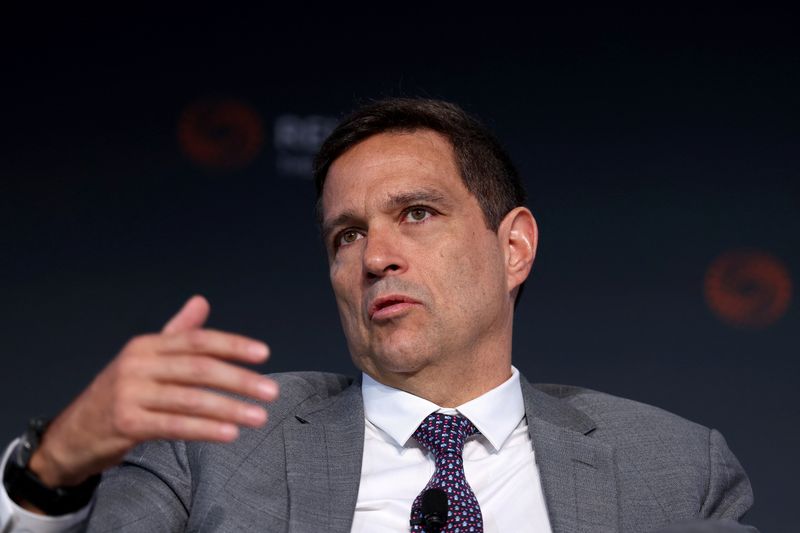BRASILIA (Reuters) -Brazil's central bank chief Roberto Campos Neto said on Friday that the increased level of concern among policymakers about the external scenario has not changed to the extent of altering their inflation risk balance.
"The external scenario is more challenging, but the exchange rate did not respond. Apparently, the markets understand that there is no much greater risk," he said at an event hosted by newspapers O Globo and Valor Economico.
"It had no effect on the exchange rate, long-term interest rates did not respond much either, what changed in our lives?"
Emphasizing that a reduction in interest rates would not result in a significant reversal in the exchange rate movement, Campos Neto noted the Brazilian currency has been performing well in a context where the country still maintains a "relatively high" interest rate differential compared to advanced economies.
The Brazilian real has appreciated 8% so far this year against the U.S. dollar, supported by positive trade flows amid strength in its agribusinesses and an improved risk perception following the approval of new fiscal rules proposed by the government.
The central bank began easing in August after maintaining interest rates at a cycle-high for almost a year to combat inflation. So far, borrowing costs have fallen 150 basis points to 12.25%, and policymakers signaled further 50-basis-point cuts in each of the next two meetings.
"Our guidance has been that the interest rate needs to be in restrictive territory, but we have not insisted on outlining a trajectory," said Campos Neto.
He said the central bank removed from its official communication that there was a low probability of an additional intensification in the easing pace unless substantial improvements in inflation occur because that message had already been conveyed and absorbed.
He added that domestic inflation has been converging towards official targets, with improvements in core readings, but acknowledged challenges in bringing it under control.

Regarding a potential change in the government's fiscal target to eliminate the primary deficit next year, he reiterated his support for maintaining the target, adding that the cost of losing credibility might be much higher than the fiscal space gained in any alteration.
On Thursday, Brazil's Institutional Relations Minister Alexandre Padilha said that there would be no government initiative to change the target, following President Luiz Inacio Lula da Silva's remarks that erasing the budget deficit by next year was unnecessary as it would threaten the financing of essential investments.